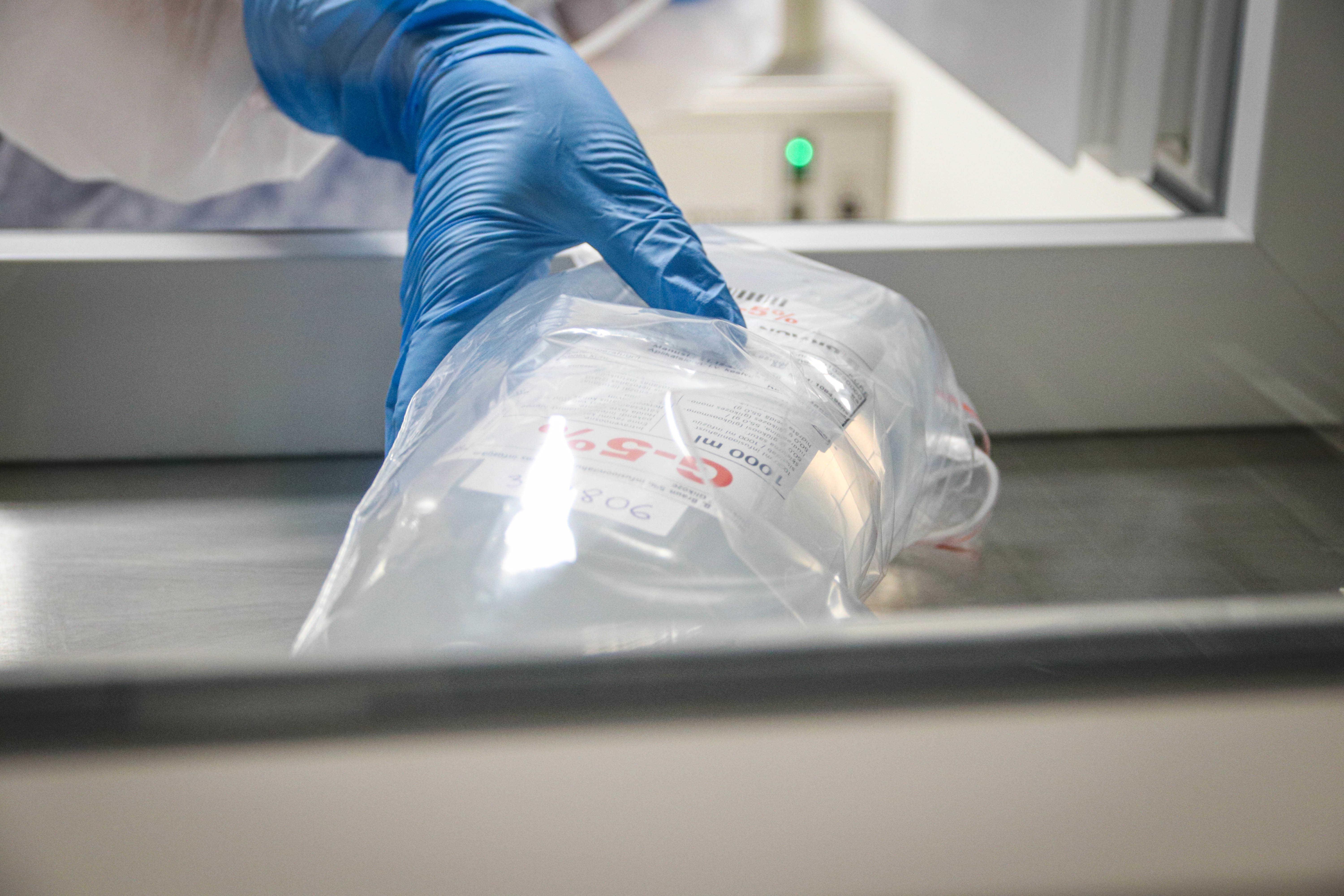East Tallinn Central Hospital and Kuressaare Hospital start chemotherapy in Saaremaa
Today, the first three cancer patients in Saaremaa were able to receive chemotherapy on their home island instead of taking a four-hour trip to mainland Estonia. This is the result of an innovative project lead by East Tallinn Central Hospital and Kuressaare Hospital.

On 21 December, East Tallinn Central Hospital in cooperation with Kuressaare Hospital started providing chemotherapy for cancer patients in Saaremaa on their home island instead of mainland Estonia. Until now, cancer patients living in Saare County have had to go to the mainland to receive treatment.
"It is extremely important that people on Saaremaa are able to receive treatment at home and are not forced to go to the mainland," says Dr Kai Sukles, Head of the Clinic of Internal Medicine. "The overall health condition of oncology patients may not be very good. If we are able to organise treatment in Kuressaare Hospital, then what better option is there?"
According to Siiri Rannama, board member of MTÜ Saaremaa Vähiühing [non-profit association Saaremaa Cancer Association], the association's phone has been ringing red with people wanting to know how they can continue their chemotherapy on their home island instead of the mainland. "Starting cancer treatment in Kuressaare Hospital is the best Christmas gift we could possibly give to our patients and their loved ones," says Rannama.
According to Kristiina Ojamaa, Head of East Tallinn Central Hospital Centre of Oncology, the people of Saaremaa will receive out-patient treatment where patients come to the hospital for treatment or are treated in the form of day care. "With day care, patients arrive in the morning to undergo testing and wait for the results, they are treated based on those results and can then go home in the evening," Dr Ojamaa explained, adding that all patients who can be referred for treatment on their home island will be.
According to Dr Kai Sukles, Head of East Tallinn Central Hospital Clinic of Internal Medicine, the work organisation of the hospital's oncologists will be needs-based. "Everything will take place according to need – our initial plan is to combine oncologist appointments and chemotherapy once a week," Dr Sukles confirmed.
Ralf Allikvee, Chairman of the Board of East Tallinn Central Hospital, said that enabling chemotherapy in Kuressaare is a necessary step for cancer patients and improves the options people have. "Every year, more than 8500 people are diagnosed with cancer in Estonia and this number shows no signs of diminishing," he said.
East Tallinn Central Hospital and Kuressaare Hospital have been contractual partners for five years and specialists have been to see patients in Saaremaa ever since – this has included oncologists for the past two years. "Starting chemotherapy was a logical step forwards. Cancer treatment, in both the narrow and broad sense, can only be successful if it is available."
Among other things, the Kuressaare project also ticks the innovation box, as it includes an isolation facility and the use of the Cato programme through telemedicine. The pharmacy in Kuressaare Hospital has been fitted with a cleanroom with an isolation facility to ensure the cleanliness class necessary for preparing medicinal products. In Estonia, isolation facilities are used in pharmacy cleanrooms only in East Tallinn Central Hospital and now also in Kuressaare Hospital. Other hospital pharmacies use biosafety cabinets.
"The isolation facility keeps the employee safe and supports basic cleanliness conditions, meaning a cleaner environment for preparing medicinal products an well as an easier cleaning schedule," says East Tallinn Central Hospital pharmacy manager Ülle Helena Meren.
The preparation of medicinal products in Kuressaare Hospital for oncology patients is also a telemedicine project of sorts. "The medicinal products are prescribed by an oncologist who is on site at Kuressaare Hospital through the computer programme Cato," says Meren to explain the situation. "The prescription order is then checked by our hospital's pharmacist in Tallinn who has experience with oncology and they then send preparation instructions back to the pharmacy in Kuressaare Hospital to prepare the medicinal product on site. Thanks to the computer programme, we can accurately supervise and instruct the pharmacy in Kuressaare on what to prepare for a particular patient and how. And if the patient requires long-term oncological treatment in Tallinn, the oncologist there will have a complete overview of the treatment received in Kuressaare."
Every year, more than 8500 people get cancer in Estonia and ca 3800 fatalities are registered due to cancer, which is around a quarter of all deaths in Estonia. According to the data shared by the Estonian Cancer Society, the number of first-time cancer patients has doubled since 1968.
Photos: Kuressaare Hospital
 Terviseportaal
Terviseportaal